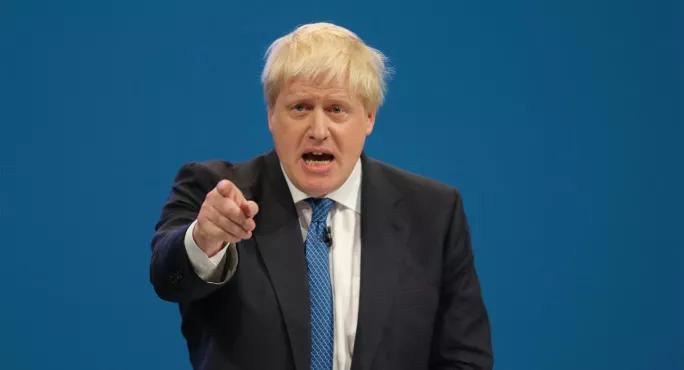- Home
- Are ‘blue wall’ schools set to miss out financially?
Are ‘blue wall’ schools set to miss out financially?

Unless you somehow ignored the polls for the past few months, it will have come as little surprise to find the Conservative Party back in government and back in Sanctuary Buildings. But this time, they have a majority and a substantial one to boot. For the first time since they came back into power in 2010, the Conservatives do not need to rely on smaller parties or worry about a handful of their own rebellious backbenchers to get their policies agreed.
With this new-found freedom, can we now expect radical changes to education policy? The short answer is no. The appetite (and, arguably, the vision) for large-scale reforms peaked under Michael Gove’s tenure and while Morgan, Greening and Hinds all tried in their own way to make their mark, none can claim to have delivered anything truly game-changing.
It’s unlikely that Gavin Williamson (assuming he retains his post after the end of January) will buck this trend and pursue the path of education revolutionary. But there are likely to be a number of small, incremental policies that will subtly shift the focus of education policies and resources over the next five years.
‘Levelling up’ school funding
Let’s take school funding first. The prime minister has been clear about his plans to “level up” funding - ensuring all primary schools receive a minimum of £4,000 per pupil and all secondary schools a minimum of £5,000. As EPI research finds, this approach would result in the most disadvantaged schools benefiting the least from the additional funding.
In fact, around half of disadvantaged secondary schools outside London would only receive inflation-level increases to their budgets next year. Combine that with a real-terms cut to the Pupil Premium (which we estimate to total around 15 per cent by 2023-24), and there is a real risk that disadvantaged schools are no better off than they were before the election.
Teacher starting salaries
And the promise of higher starting pay for teachers risks further aggravating the financial position of disadvantaged schools. The current teachers’ pay grant allocates funding based on pupil numbers, completely ignoring the fact that disadvantaged schools have more teachers overall and more newly qualified teachers. Disadvantaged schools have so far lost out because of the way the grant is allocated and, unless that changes, they will continue to do so.
Keeping with teaching, the development and roll-out of the Early Career Framework will almost certainly continue and is one of the more positive and evidence-based policies that has emerged in the past year.
Exclusion over inclusion
While the Conservative manifesto says little on accountability, the commitment to expand alternative provision, clamp down on behaviour and back headteachers to use exclusion, all point to a culture that is likely to exacerbate, rather than fix, some of the flaws in the accountability system.
There is no mention of whether and how they will address the recommendations made in Edward Timpson’s review of school exclusion or how they will address the fact that one in 10 secondary pupils are removed from their school for no explicable reason. The focus both in the manifesto and in the DfE is very much on exclusion, rather than inclusion.
Selection and free school expansion
Although we are unlikely to see a similar rate of growth of academies and free schools as we did under Cameron’s government, some promising results from the early free schools will give government the confidence to expand the programme. This could be a positive policy if new free schools are targeted in the areas that need them - but the government must avoid the trap of simply applying a “copy and paste” model. What works in Brent may not work so well in Barnsley.
And on the subject of school places and expansion, here is probably the area most ripe for small but significant changes. As highlighted in our analysis of party manifesto commitments, the government will consider itself to have a mandate to open new selective schools. It is unlikely that ministers will introduce new legislation all at once - but they are likely to allow existing selective schools to expand at a greater rate than at present, provide more capital funding for them to do so and have an increasingly loose definition about the creation of “satellite”, or “annex” campuses.
A cautious approach?
So, on the face of it, Conservative education policy looks to have retained the more cautious approach that has come to define the post-Gove era. There have been no big, headline-grabbing announcements on a par with opposition policies - such as abolishing Ofsted, tuition fees or primary school tests.
But the combined effect of many of the government’s plans could be very significant, particularly for schools seeking to be inclusive and those in the most disadvantaged communities. Many of the latter fall in constituencies that have turned blue for the first time in decades. In order to meet their high expectations, the prime minister will need to ensure the more positive aspects of his education agenda do not pass them by.
Register with Tes and you can read two free articles every month plus you'll have access to our range of award-winning newsletters.
Keep reading with our special offer!
You’ve reached your limit of free articles this month.
- Unlimited access to all Tes magazine content
- Save your favourite articles and gift them to your colleagues
- Exclusive subscriber-only stories
- Over 200,000 archived articles
- Unlimited access to all Tes magazine content
- Save your favourite articles and gift them to your colleagues
- Exclusive subscriber-only stories
- Over 200,000 archived articles



